Top 5 World Leaders
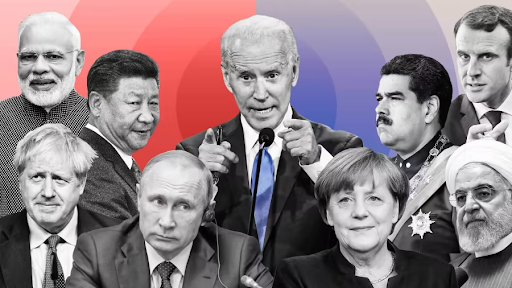
Photo Source: https://www.ft.com/
October 21, 2022
What makes a world leader great? What makes them stand out from the rest? What makes them strike hope into the hearts of their people and the public they serve? There have been thousands of world leaders, maybe millions, that have done this. Some have handled their power with grace and respect while others have let the power corrupt them and turn them into savage and power-hungry beasts. This list will explore the greatest world leaders known to mankind.
As always, this is my opinion and could be very different from someone else; I will be judging these world leaders on what they did for their country, what they did for the people in their country, and the lasting effects their leadership holds, not only in their country but the rest of the world. DISCLAIMER: This list is in no order.
5. Winston Churchill
“We shall fight on the beaches” or “We shall never surrender” are just some of the many inspiring and powerful quotes said by Winston Churchill. Winston Churchill incited many in his tenure as Prime Minister of the United Kingdom from 1940 to 1945. Churchill was then elected yet again from 1951 to 1955. He had many events conspire during his two tenures. The biggest event being, of course, WW2. Winston Churchill rallied the British people and led the country from the brink of defeat to victory. He shaped Allied strategy in the war, and, in later stages, alerted the West to the expansionist threat of the Soviet Union. Not only is he one of the best British Prime Ministers of all time but one of the greatest and most influential world leaders of all time. His resilience and determined attitude inspired and motivated other world leaders for decades to come. Many leaders have crumbled at the sign of economic struggles, never mind a world war. Winston Churchill promised to not let Britain down and fought onward even when victory looked inevitable.
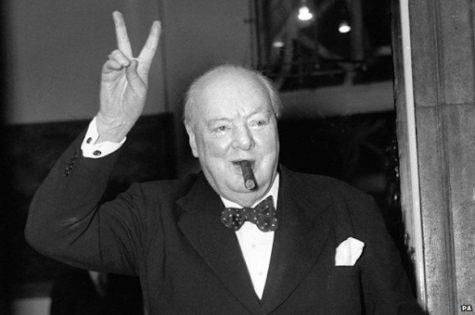
4. Nelson Mandela
The man synonymous with civil rights and defying the racial barrier. Nelson Mandela was the first ever president of South Africa from 1994 until 1999. His rise to the presidency is not that of a normal presidential journey. He spent an excruciating 27 years in prison (1962-1990) for opposing the highly racist segregation laws in South Africa at the time. Nelson Mandela improved the living standards of South Africa’s black population, who had suffered for decades under apartheid, the cruel system of white minority rule. He worked hard to make South Africa a country of equality, where people of all races could live together in peace. Mandela helped to unite South Africa as it dismantled apartheid. He symbolized for all of Africa a commitment to true democracy and civil freedom. From being in jail for 27 years to being the leader of the same country that treated him like he was merely a piece of dirt on their shoes. He also won the Nobel peace prize in 1993 for his part in the peaceful termination of the apartheid that was in South Africa, and for setting up a new democratic in South Africa. Nelson is the ultimate hero and inspiration.
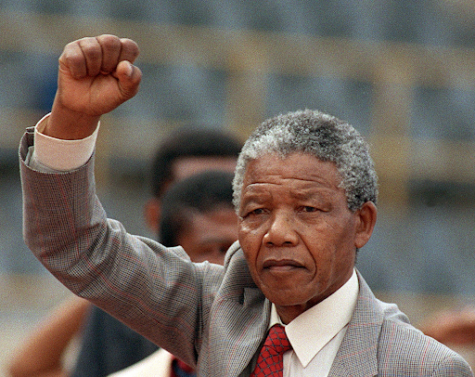
3. Mahatma Gandhi
Gandhi is the one person on this list that was not an official President, yet his actions and civil service to his country, India, made him hold the popularity and power a leader can dream of. He held a cult of personality not only in India but also in the rest of the world. Gandhi is the face of civil rights and peacefulness that is still felt to this day. He is still honored in India as the father of the nation, he pioneered and practiced the principle of Satyagraha, the resistance to tyranny through mass nonviolent civil disobedience. He inspired many to wake up and fight the British tyranny and racism that was running rampant in India at the time. He fought to have India break from the British and gain its independence. He encouraged his followers to be peaceful and not be too extreme. Gaining independence from a country peacefully is a whole other accomplishment on its own. Mahatma Gandhi did just that.
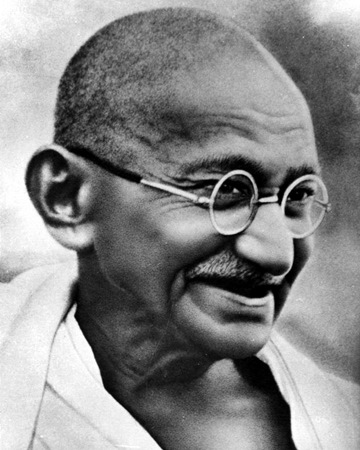
2. Napoleon Bonaparte
A man considered to be one of the best military leaders to ever grace the battlefield, Napoleon served as the President of the Italian Republic from 1802 to 1805, then King of Italy from 1804 to 1814. At the same time, he was Emperor of the French. He rose to fame in the French Revolution. He also served many successful stints in the Revolutionary War. Besides being one of the most decorated military leaders of all time, he was one of the greatest political leaders as well. Napoleon did what others couldn’t do, be a fantastic military and political leader at the same time. (Many others failed to pursue political office after a military career) As First Consul, Napoleon instituted a number of lasting reforms: centralized administration of government, a higher education system, a central bank, law codes, and a road and sewer system, which are still in place today. This one man brought together a whole broken country. Over two hundred years later, Napoleon’s actions are still felt, not only in France but around the whole world.
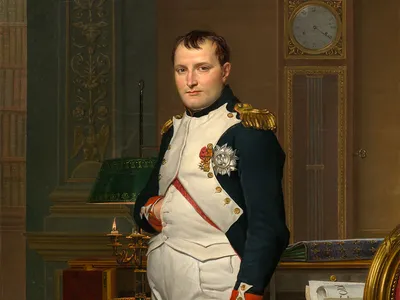
1. Alexander The Great
The man that Napoleon aspired to be, and a man many Roman generals like Hannibal, Caesar, and Pyrrhus took inspiration from. Alexander the Great was the King of Persia, the King of Macedonia, and the Pharaoh of Egypt from 336 BCE to 323 BCE. He succeeded his father Philip II in 336 BC at the age of a young 20 and spent most of his ruling years conducting a lengthy military campaign throughout Western Asia and Egypt. Alexander was respected yet feared by his people and opposition. By age 30, he had created one of the largest empires in history, his empire stretched from Greece to the Indus River in present-day Pakistan, a lengthy and impressive 2 million square miles. He was undefeated in battle and this is why he is widely considered to be one of history’s greatest and most successful military commanders of all time.
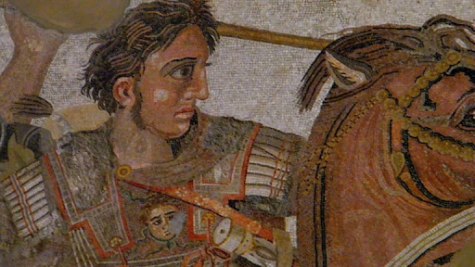

Zack Jegorow • Nov 21, 2022 at 11:33 am
Despite the controversy surrounding Napoleon, I think you had a good take accounting for his effect even in France today. Winston Churchill would also be in my top 5, being the rejection of fear and defeat he carried with him throughout his time as Prime Minister. Overall solid article, with interesting points!
Cristian Gomez • Nov 1, 2022 at 8:56 am
Great article! I really liked your points, but I think something separates Napoleon and Alexander the Great from the likes of Gandhi and Martin Luther King Jr., is what makes them great leaders, Napoleon and Alexander were great conquerors but did they make society better for their people in end? How would one compare them to rights activists, but I definitely agree they were all great leaders but in their own categories of great.
Miles Azenaro • Oct 25, 2022 at 9:22 am
I really enjoyed the list, it brought up some very interesting historical figures to thr forefront of public attention. However, I feel the placement of Alexander the Great is a bit off. Alexander, whilst conquering a large swath of land, died young and his empire split apart almost immediately. If just his conquest of Asia is grounds for his spot, then why not put ghengis khan in first place, for his empire was larger, and lasted quite a bit longer. I feel like Alexander the Great, Great as he was, is less deserving of this placement than other leaders who did more and had a longer and larger historical impact.